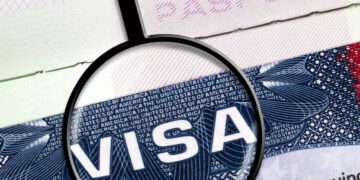Influx of cruise arrivals raises overtourism concerns in Greece

The Greek government announced new measures to address the adverse effects of overtourism in the country.
This is in light of a growing influx of travellers pouring in from cruise trips sailing into Greek ports as travel restrictions relaxed post-pandemic.
In his keynote speech at the Thessaloniki International Fair on Saturday, 7th September, Greek Prime Minister Kyriakos Mitsotakis highlighted concerns regarding tourist arrivals at certain points of the year. This prompted the government to propose a new tax geared towards mitigating the effects of the ongoing climate crisis in the Greek hospitality sector.
Mitsotakis added that the government also intends to restrict cruise ship arrivals to Greece’s most popular islands beginning next year.
Current statistics and potential changes
In the past year, tourist arrivals in Greece hit a record 36.1 million visitors.
As of 30 June 2024, the Bank of Greece reported that the number of foreign arrivals increased by 16 percent, settling at 11.6 million.
While the tourism sector contributes up to 20 percent to the national economy, Greek citizens complain that the influx of foreign nationals has adversely impacted their cost of living, overall security, as well as the state of cultural landmarks.
To mitigate this, the Greek government plans to expand its Golden Visa programme to investors willing to put up at least US$277,000 into local startups. Prior to the pandemic, potential foreign investors needed to buy property in the country to secure the Golden Visa.
Likewise, passengers arriving at Greek sea ports will be required to pay additional fees. Such fees will be higher for key tourism destinations like Mykonos and Santorini.
At the same time, the government will implement the charging of a higher lodging tax throughout the peak travel season which runs from April to October.
Leave a Reply Cancel reply
- Trending
- Comments
- Latest
Stocks making the biggest moves midday: AAL, AVGO, JPM
Why the ‘great resignation’ became the ‘great stay’: labor economists
TTMiles
Travel with me and experience each trip as a magical chapter in my travelogues. Come along with me as we discover the marvels of the globe one engrossing tale at a time.
Read more
Categories
Recent News
Stocks making the biggest moves midday: AAL, AVGO, JPM
© 2024 Trilliontravelmiles - The one stope travel news site by Trilliontravelmiles.















































